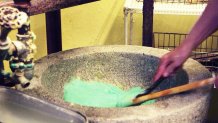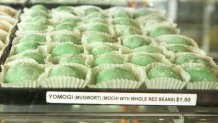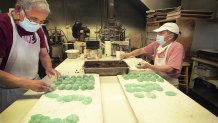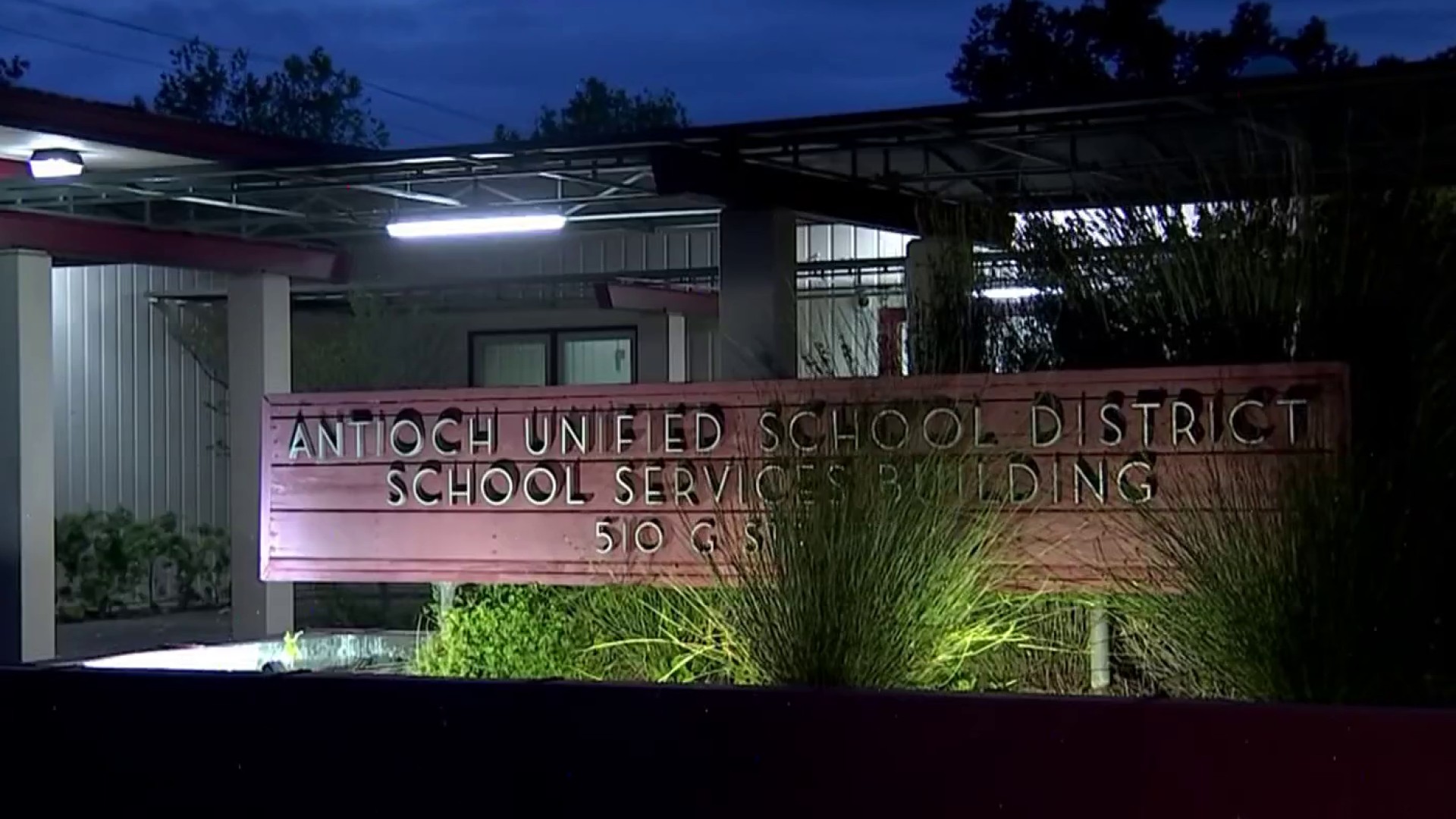In the silent hours before San Francisco's Japantown comes alive with visitors, Bobby and Ricky Okamura are already on the job, their four hands deftly shaping and molding the day's mochi and manju for a clientele that will patiently wait in line for them.
As they work, turning out a thousand pieces of pastry a day, the brothers seem nonchalant about the fact Benkyodo, which was opened by their grandfather in 1906, is the oldest business still in Japantown -- and has survived through a litany of challenges; from the 1906 earthquake and fire to the internment of Japanese citizens during World War II to the rampant redevelopment which saw Japantown shrink from forty to four blocks -- and now the COVID-19 pandemic.
"This is normal for us," said Bobby Okamura, his hands filled with pliant green mochi. "Time goes on and on, so you don’t think about the time."

Get a weekly recap of the latest San Francisco Bay Area housing news. Sign up for NBC Bay Area’s Housing Deconstructed newsletter.
What has not been normal for the Okamuras, is the sabbatical the pandemic forced on them in March of 2020. The shop remained closed until June, the first extensive period Benkyodo had closed, at least in the era of the brothers who are the third generation to run the business.
"Of course we have no income coming in," Okamura recalled. "We did have a lot of anxious moments not knowing when we were going to open."
When they did reopen, business trickled back. The line winding along the storefront to the counter grew longer every day. The brothers took comfort in their morning ritual making and forming mochi, a pastry dough made from glutinous rice. Inside, they stuffed peanut butter, red bean flavored with strawberry and blueberry. While most commercial mochi and monju -- a pastry stuffed with red bean and fried like a donut -- are made by machine, the Okamura's handmade version is perfect in its imperfection.
"Ours looks very appetizing," said Ben Nakajo, who's worked at the shop the last 50 years. "It’s made by hand, each one is different."

The brothers have toiled in the back room of the pastry shop since childhood. As the older brother, Ricky learned the trade first from his father and then mentored his younger brother. He arrives at the store at four in the morning to begin the cooking which will wind up just as the front door is opening.
"I did it because it was a family thing and my dad was happy," Ricky said. "People really look forward to these things -- mochi -- I mean, they wait in line!"

Though the pastry business is again drawing customers -- the shop's indoor dining remains shut down. The long dining counter, a throwback to 1959 when the business relocated to its current location, served a social hub where customers would gather for lunch or coffee and tea.
Local
"Now there’s no place for them to do that," Bobby said. "I feel kind of bad for them."
The pandemic set Japantown itself at the razor's edge of a cultural crossroads. More than two-hundred Japanese businesses are located in a pair of indoor malls that remained closed for months during the pandemic -- leaving those businesses without the option of curbside pickup. The large corporations that own the malls still demanded rent from the stores. Nakajo worries many of those businesses will not come back.
"If Japantown, as it is now, loses that base in terms of line of businesses and those shops that are the economic lifeline of this community," Nakajo said, "then this community will disappear."
The brothers were vague on published reports that say they plan to retire at the end of the year and are looking for someone to buy the business. They insist that even during the shutdown, they never considered closing up for good.
Regardless of whether the reports are true, the brothers show up for work just as they have their entire lives, continuing to stand across a table from each other, hand-making pastries that draw a devoted following, mixing the mochi in the same stone bowl their grandfather used in 1906.
"For me it’s coming in and seeing the customers," Bobby said above the din of fans and ovens. "And then they get the mochi and see a smile on their face -- makes me happy."



